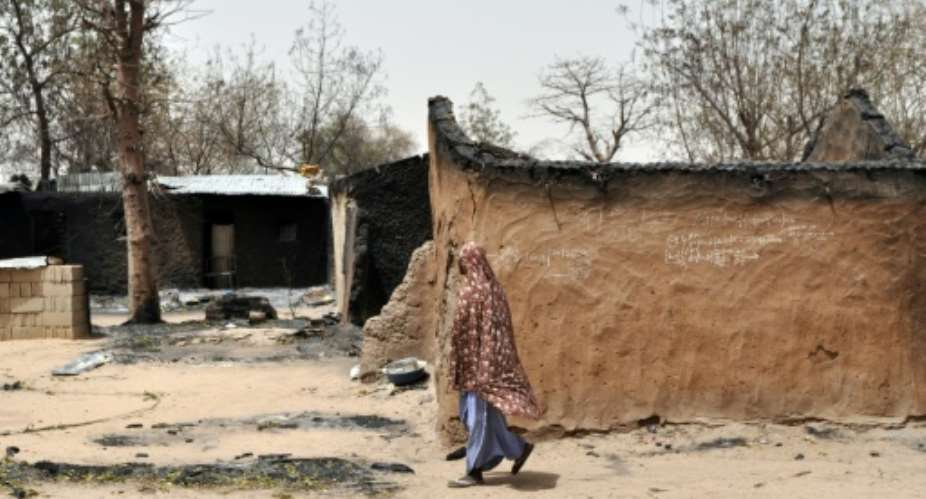Abuja (AFP) - UN human rights experts on Friday urged Nigeria to increase its efforts to help women and children after they have been freed from captivity by Boko Haram in the country's conflict-riven northeast.
After a five-day visit to the region, three special rapporteurs said there was an "urgent and pressing need for effective measures to address stigma, ostracism and rejection of women and children" as a result of their captivity.
Boko Haram has used the kidnap of women and young girls as well as the forced conscription of men and boys as a tactic throughout the conflict, which is now in its seventh year.
The most high-profile abduction was of more than 200 girls from their school in the northeastern town of Chibok in April 2014, which caused global outrage.
But human rights groups have said thousands of others have been seized in recent years, forced into marriage with Islamist fighters and subject to physical and psychological abuse.
A Nigerian military fight-back throughout last year saw hundreds of victims freed from captivity and given trauma counselling at camps for displaced persons.
But despite their experience, there are fears they will be shunned when they return to their homes in the conservative, mainly Muslim region.
"Efforts at community cohesion, peace-building and reconciliation must start now and accelerate as people begin to return from displacement," the UN team said in a statement.
Access to a "just and effective remedy" in the courts was also "paramount to their recovery and reintegration", they added.
The three experts, who specialise in child welfare issues, contemporary slavery and healthcare, said they recognised Nigeria's efforts to find and free those abducted.
But they said "the lack of information on the steps taken to find abducted persons, including the Chibok girls, and document cases of kidnappings and abductions remains a source of major concern"
Other measures required included rebuilding education and healthcare facilities in an area where schools have been used as camps for the displaced and hospitals bombed or set on fire.
Nigerian President Muhammadu Buhari last month said Boko Haram had been "technically" defeated as a result of the counter-insurgency, despite continued suicide and bomb attacks.
At least 17,000 people have been killed since 2009 and more than 2.6 million made homeless by the fighting.





 Saglemi Housing Project will not be left to rot – Kojo Oppong Nkrumah
Saglemi Housing Project will not be left to rot – Kojo Oppong Nkrumah
 Transport fares hike: GPRTU issue two-day ultimatum
Transport fares hike: GPRTU issue two-day ultimatum
 ARC endorses Alan as presidential candidate – Buaben Asamoa
ARC endorses Alan as presidential candidate – Buaben Asamoa
 Akufo-Addo appoints Kwasi Agyei as new Controller and Accountant-General
Akufo-Addo appoints Kwasi Agyei as new Controller and Accountant-General
 PNC dismiss reports of mass resignations
PNC dismiss reports of mass resignations
 PAC advocates for revenue collectors to be engaged on commission basis, not full...
PAC advocates for revenue collectors to be engaged on commission basis, not full...
 Genser Energy commissions 110km of natural gas pipeline at Anwomaso
Genser Energy commissions 110km of natural gas pipeline at Anwomaso
 Naa Torshie calls for tolerance, peace ahead of 2024 election
Naa Torshie calls for tolerance, peace ahead of 2024 election
 Asantehene commends Matthew Opoku Prempeh for conceiving GENSER Kumasi Pipeline ...
Asantehene commends Matthew Opoku Prempeh for conceiving GENSER Kumasi Pipeline ...
 Let’s do away with ‘slash and burn politics’ in Ghana — Dr Adutwum
Let’s do away with ‘slash and burn politics’ in Ghana — Dr Adutwum
